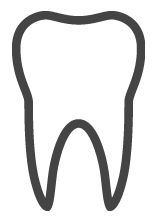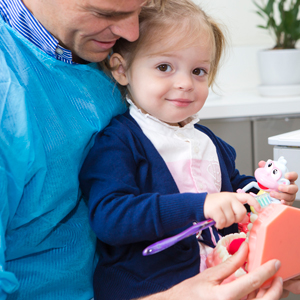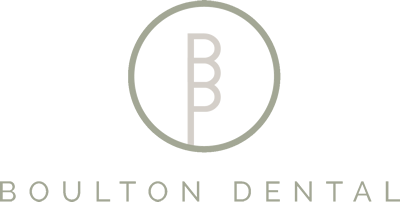 It’s important for the overall health of your child that you establish healthy habits early.
It’s important for the overall health of your child that you establish healthy habits early.
Let us know when you make an appointment if this will be your child’s first-ever encounter with a dentist.
We want to create a great relationship with your child from the start, so they’ll learn and follow good oral health without fear.
For the first examination, we usually encourage you to keep your child on your lap so the child feels safe and comfortable.
Taking care of your young child’s teeth
Tooth decay in young children is a serious dental condition, with nearly 50% of children having decay at the age of 6. However, you can help your child keep his or her teeth long enough for the tooth fairy to come naturally.
- Limit the child’s sugar intake (including soft drinks, juices, lollies and so on).
- Usually, ensuring they drink enough water will give them adequate fluoride. (See the Australia Dental Association policy on fluoride)
- Brushing: Teach your child how to brush (and help them brush until they are 8 or so).
- Thumb or dummy sucking: Once all the child’s teeth are through, it’s a good time to encourage your child to stop the practice. Thumb or dummy sucking can push teeth out of alignment. Generally, a program of positive reinforcement will help your child stop.
- Signs of decay: Get a copy of the ‘Lift the lip’ brochure from our surgery. Only your dentist can tell for sure but early signs are sensitivity to hot and cold or sweet foods or drinks. At this stage, we can stop the decay without drilling.


 Children’s teeth begin forming before birth. As early as four months, the first primary, or baby teeth, erupt through the gums. Most children have all their first teeth through by the time they’re four years old.
Children’s teeth begin forming before birth. As early as four months, the first primary, or baby teeth, erupt through the gums. Most children have all their first teeth through by the time they’re four years old.